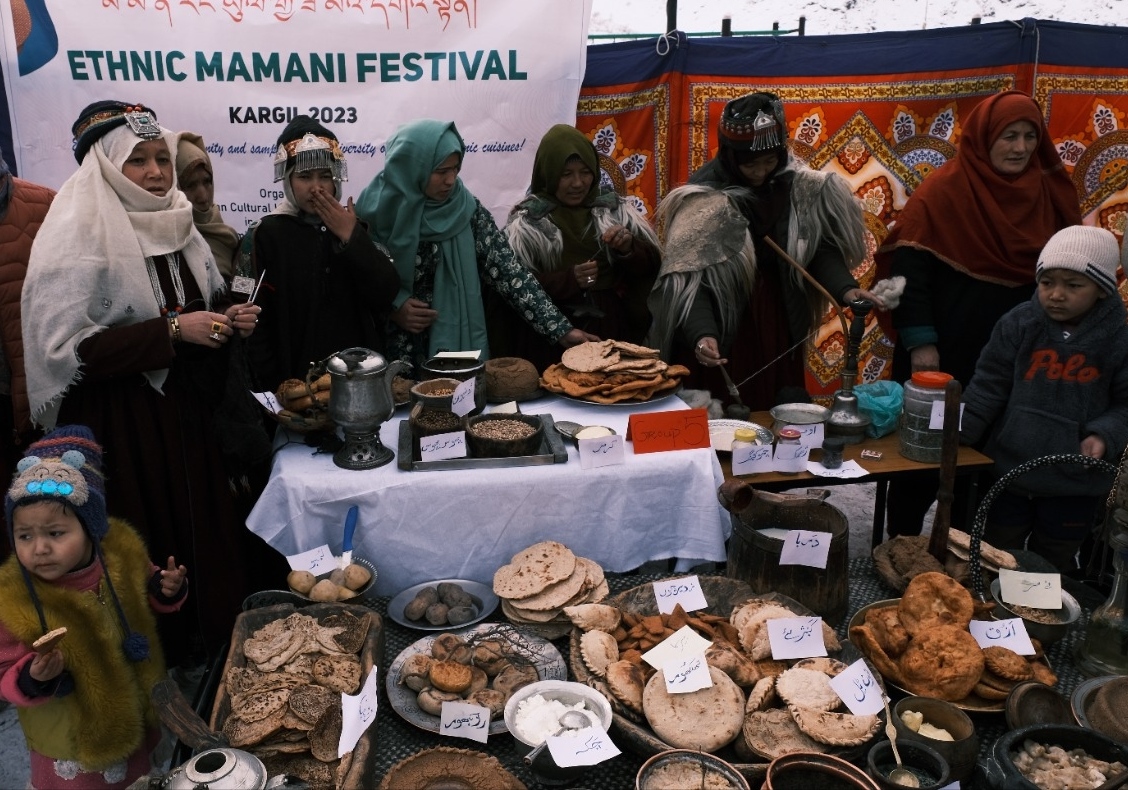An ethnic Mamani food festival in a village in Kargil, showcasing the traditional utensils and clothing, has pulled an encouraging crowd on Sunday.
Organised by the Himalayan Cultural Heritage Foundation (HCHF) in Kargil, the festival aims at restoring the legacy connected to Ladakh’s famous Silk Route.
Advertisement
HCHF founder Dr. Sonam Wangchok said that the ongoing festival in the historical village of Steyangkung Barsoo of the Kargil district in collaboration with village Nyerpa committee is drawing good response.
Advertisement
He said that despite heavy snowfall, the Participators have set up traditional food stalls, displaying traditional utensils and clothing.
The festival is being put on as part of HCHF’s Silk Route Campaign Ladakh initiative, which aims at strengthening and restoring the intangible heritage connected to the renowned Silk Route and its legacy, said Wangchok.
For the last couple of years, the HCHF has collaborated with local communities and youth associations to host the Ethnic Mamani Festival every year in the Kargil district of Ladakh.
HCHF stresses on imparting heritage education to the villagers, especially the youth and children about the importance of cultural heritage through festivals and training workshops and the Mamani festival’s aim is to revive and promote the Ladakhi traditional foods, he said.
According to Wangchok, by bringing people together for the event, it is an occasion to educate the people about their cultural and natural heritage, making them proud to be Ladakhi.
Dr. Mehdi, a scientist at the Krishi Vigyan Kendra in Kargil stressed the importance of eating healthy in his explanation of the value of traditional organic foods. Additionally, he discussed the vitamins found in the home-cooked, traditional Ladakhi cuisine.
Earlier, Haji Ghulam Mohd presented the detailed history of Styangkung village. The Steyangkung village is around 500 years old and still well-preserved till now and being developed as one of the well-maintained heritage villages in Ladakh.
The old custom of offering food to deceased family members is where the origins of the Mamani celebration in Ladakh begins. The people would share food with their neighbours and relatives at Mamani, and they would also worship a variety of spirits (Lha). The stories and information about this long-standing custom has been passed down through the generations.
The locals gathered in a particular location known as lChangra in the village with all the prepared traditional dishes on this particular occasion. The entire village that has gathered there is then served the food.
The Mamani ceremony, which honours the start of spring after a long winter, is held each year in January. Even if some communities continued to celebrate Mamani, during the last few decades, it started to lose its appeal.
The Mamani tradition, a key part of Ladakh’s cultural history, has been actively sought to be revived during the past few years by HCHF, under the guidance of social activist Anayat Ali Shotopa and renowned historian Mohammad Sadiq Hardassi.
This celebration is very important culturally because it gives communities the chance to unite and not only celebrate their shared history but also bring back the traditional foods, Wangchok added.
Advertisement









